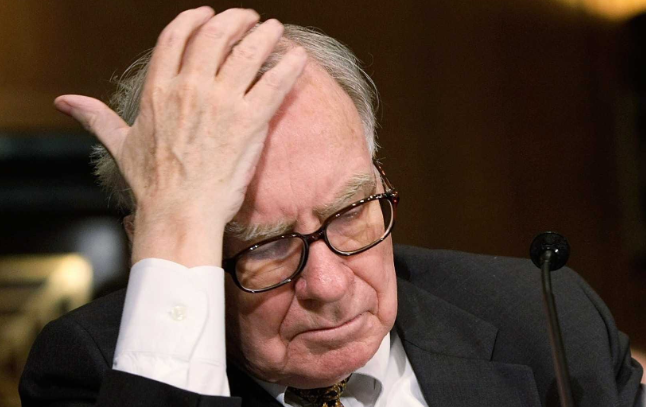
So I’m long Bitcoin.
It’s a bit uncomfortable to admit, because there’s such wide scepticism concerning crypto among a lot of smart people. And it’s hard to deny there’s a huge amount of hype and speculation surrounding the whole affair. I’m sure a lot of people will get burnt.
Back in 2017 when Bitcoin first came to global attention, I was pretty negative about it. At least in terms of the investment merit.
But fast forward to today and I think things have changed in a couple of major ways. And when the facts change (or, at least, your interpretation of them), you have to be open to changing your mind.
So for my own sake, as much as anything else, I want to outline my thinking.
Before I do, I’ll warn you that none of the reasoning is especially original. And although I admit many of the arguments for Bitcoin can come across as optimistic, naïve or even flaky, I think some have gained more credibility over time.
Let me also stress that I’m very much taking a long-term perspective. I’ve no idea how the price of Bitcoin will move in the next few years.
I’d also like to avoid a deep dive into how blockchain technology and cryptocurrencies work. There’s loads of good stuff out there, and many of you will be broadly familiar with it already.
For me, it’s not so much about how it works from a technical standpoint, but rather that it seemingly does ‘work’. And that’s what has started to sink in for me — the core value proposition of Bitcoin and how it’s actually delivering on much of its early promise.
Yeah, it’s completely intangible. Just a set of rules programmed into a bunch of computers. But it can guarantee — with the highest standards of mathematical certainty — that the system will function exactly as everyone expects.
It’s a trustless system. And that’s a big deal.
With regular fiat currency, like the Aussie dollar, we put a huge amount of faith in it because we trust the Government to guarantee it and manage the amount of Aussie dollars in the system. And that’s a perfectly sensible thing to think.
The thing with Bitcoin is that we don’t need to trust in anyone. In essence, we’re putting our faith in computer code and mathematics.
Again, you don’t need to know how it works, only that when someone says they own a Bitcoin, everyone can agree on the legitimacy of their claim with absolute certainty. And when a Bitcoin is transferred to someone else, everyone can agree that it happened.
Not only is no one person or entity required to manage it, no one can manage it.
This is something that is genuinely new. And potentially very powerful.
People have been saying this for years, but what’s different today is that we have a much longer history over which the technology has been further validated. And there are increasing numbers of credible people and institutions that are seeing it as legitimate.
When did you ever hear of Bitcoin being hacked? In theory, it’s virtually impossible (or to put it another way, the odds of a successfully compromising the system are astronomically low). And with a total market value of well over $1 trillion there is an incredible incentive for any would-be hackers to try.
That could change tomorrow, in which case Bitcoin is probably worth zero. But it seems increasingly unlikely.
The crypto frenzy of 2017 was almost entirely driven by private investors — everyone from your dentist to your Uber driver. And it was driven by a lot of speculation and hype, which is typical when a new technology emerges.
There’s more than a few parallels here with things like electricity, steam engines and the internet itself. After the initial high-risk, speculative fervour there’s a gradual proving out and, eventually, a general acceptance and adoption of a few remaining standards.
And while there’s undoubtedly still a lot of hype out there, I think we’re now further enough down the path to have a clearer view of the genuine value this technology affords, and who the likely winners will be.
As the largest held and traded cryptocurrency, much of the network effects at play will increasingly compound in Bitcoin’s favour. For example, as the network of users gets larger, the underlying cryptographic process gains a highly level of security and reliability — providing a positive feedback loop.
And while new cryptographic techniques and approaches will come along, it’s worth remembering that the underlying code for the Bitcoin system can be updated and changed — so long as there is enough consensus among token holders. So to some degree it’s future proof.
(One good example is the potential switch to a “proof of stake” validation, as opposed to the current energy-hungry “proof of work” approach.)
The real value in Bitcoin is the magnitude of its adoption. The bigger it gets, the more its utility is strengthened and the harder it is to displace.
The ongoing growth of the internet is another huge driver.
This global network of computers that we’ve created has come a long way in a historical blink of an eye, but I truly believe we are still in the digital stone age. What the internet has the potential to become is beyond most of our imaginings.
Yeah, that sounds really cheesy but you only have to look at how much we’ve already changed in the last ten years. Remember, the iPhone was only invented in 2007!
I can’t guess at how the internet will evolve, but the key thing for me is that it will continue to grow in significance — dramatically. I think it will also render national boundaries less clear. As more of our lives are online, the value proposition of a digitally native asset only increases.
Indeed, there is some super cool potential with blockchain tech being applied to distributed computing and other wild (but seemingly plausible) ideas. That’s why I also hold a bit of Etherium, but that’s a topic for another day.
Yes, there are problems. The energy intensity of the system (and therefore it’s environmental impact) is very real. Governments could also act to try and limit or restrict its use. And there are some transactional mechanics which aren’t ideal for the currency use-case (I tend to think Bitcoin is better thought of as a store of value, so-called “digital gold”).
But these challenges don’t seem insurmountable; not when put in the context of the potential benefits.
So my basic premise is this:
Cryptographic assets are a genuine thing that will become increasingly accepted in society. Bitcoin has a strong and difficult to dislodge advantage by nature of its level of adoption, and this will likely continue to strengthen over time. And as the network of users grows, so too will its value.
What a Bitcoin is really ‘worth’ is hard to say but, in general, its value is tied to the size and utility of the network. And if acceptance gets beyond a certain tipping point there’s potentially a long way for the value of Bitcoin to run.
I expect that we’ll see huge amounts of volatility in the years ahead. I wouldn’t be surprised to see more than a few drawdowns of >50%. I have no view on where the price of Bitcoin is headed in the next few years, let alone the coming days and weeks.
I just think that it’s something that will be more accepted and used (and therefore more valuable) in 10 years.
At the same time, it could go to zero tomorrow. Or maybe it never really goes anywhere from here and remains a fringe concept with a limited use case. I’m the first to admit that there’s loads of risks and this is far from a sure bet.
As such, Bitcoin represents less than 5% of my total investments. I don’t have nearly enough confidence to risk more than that.
But I still find it an appealing proposition given the asymmetry of possible outcomes. If these broad trends are set to continue, the upside could be significant. The downside, on the other hand, can never be more than 100%.
Is there a more than 10% chance that Bitcoin will increase 10x in value over the next decade? If so, it’s a mathematically sound bet. If you think there’s a better than 1% chance it delivers a 100x return, it also makes sense.
At least statistically. And that’s how you have to think about it.
Heads I win — and potentially a lot. Tails, I lose a modest amount and emerge relatively unscathed.
Unless there’s any reason to change my thinking — and I’m very open to that possibility — my plan is to just throw a few bucks at Bitcoin a few times a year. Dollar cost averaging is one of the most underrated ideas in investing, and it’s perfect for something that you think will be volatile, but for which you believe the general long-term trend is favourable.
So yes I’m long Bitcoin, but with a very high awareness of the risks and with my exposure matched accordingly.
Strawman is Australia’s premier online investment club.
Members share research & recommendations on ASX-listed stocks by managing Virtual Portfolios and building Company Reports. By ranking content according to performance and community endorsement, Strawman provides accountable and peer-reviewed investment insights.
© 2021 Strawman Pty Ltd. All rights reserved.
| Privacy Policy | Terms of Service | Financial Services Guide |
ACN: 610 908 211







